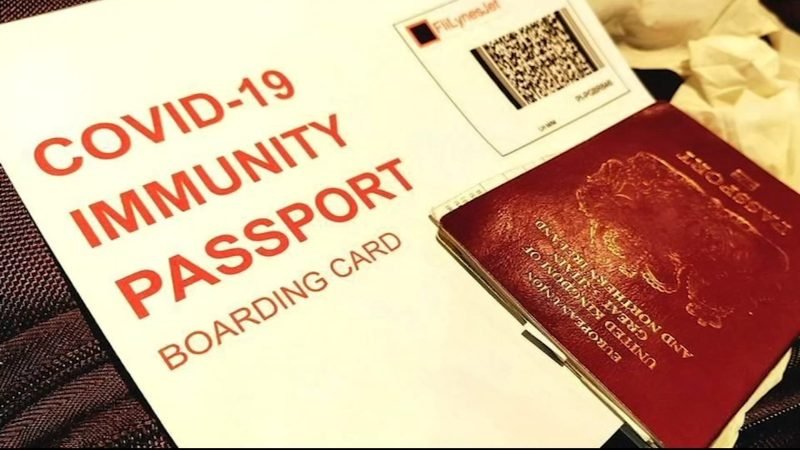Vaccine Passports: More harm than good?

The first known case of COVID-19 infection emerged around November-December 2019. The disease reached pandemic levels by 2020. Subsequently, the world invested in finding potential vaccines to fight against this virus. The scientists faced a major problem in identifying the strain of the virus. This is because generally, viruses do tend to mutate over a period of time. Thus, any new strain of the virus is labelled a novel coronavirus (nCov), i.e. a virus strain hitherto unidentified in humans. As of now, the world knows about the UK, South Africa, Brazil and Japanese variants of COVID-19. Lockdowns, vaccines, masks, sanitisers, maintaining good physical hygiene and social distancing measures form the core of some preventive techniques.
The year today is 2021. COVID has lingered on, so much so that many believe life in pandemic times is the new normal. Lockdowns can never be a permanent solution, as locking down economies leads to huge losses for a country’s economy. Under such a situation, a new concept has been proposed- that of a vaccination passport. A vaccination passport is a document that explicitly indicates that the holder has been vaccinated against COVID-19. Some variants of the passport also display that the holder has, in fact, tested negative for COVID-19, is safe for travel and thus, free to travel.

The idea of a vaccination passport is not new. Global policymakers have in fact taken a cue from a vaccination proof required by several countries even prior to the pandemic. For Instance, Travelers to the US and India from many African countries have been required to furnish some proof that they have been vaccinated against diseases such as yellow fever. At the outset, it is pertinent to note that though a few countries have begun to accept vaccination proofs to allow travellers to avoid mandatory quarantine norms, a universally accepted version of such a vaccine passport has not come into existence as yet.
Proponents of the vaccine passport opine that vaccine passports will be greatly beneficial in reviving the travel and hospitality industry that has been hit the hardest in pandemic times. Vaccine passports will ensure to some extent, liberties such as the right to transportation, maintaining social contact, right to work in office spaces; and assures the bearer a sense of greater public safety and protection against the pandemic. Vaccine passports will in some sense, also soothe people psychologically. People with the vaccine passports feel assured of restoration of normalcy. Thus, it is hoped that vaccine passports will encourage more and more people to get vaccinated.
Those arguing against vaccine passports point out that the notion of vaccine passports is discriminatory in nature. More so, there may well be people choosing to not get vaccinated despite being offered the vaccine. Not conforming to the societal norm then, would likely lead to stigmatization. That the vaccination passport would not be sold in the black market anyways cannot be ruled out. Thus, any rollout of the vaccination passport has to be done such that there is no scope left for fraudsters to operate and cheat anyone. Concerns have also been raised over possible data privacy breaches. Sensitive personal information of individuals would be used to determine who gets the passport. In a sense, whether an individual enjoys the liberty to move around unrestricted would then be determined by a person’s health status. This creates ethical and logistical issues which threaten to aggravate the socio-economic inequality prevailing in societies across the globe. This has raised serious ethical and logistical problems that have panicked the decision-makers globally.

An important question which the proponents of the vaccine passport need to answer is this- what vaccines will ensure that a vaccine passport may be issued? At present, more than a dozen vaccines are already being used globally, and many more are in the development phase. If someone vaccinated with COVAXIN, COVISHEILD, AstraZeneca, SPUTNIK and numerous Chinese vaccines need to go to the USA, would it be necessary to get vaccinated again, with vaccines rolled out by either Pfizer, Moderna or J&J? There is no clarity on this yet.
Proponents of vaccine passports clearly have much to answer. Vaccination passports should meet benchmarks for COVID-19 immunity. They should also accommodate differences between vaccines and their efficacy and changes in efficiency against emerging COVID variants. Vaccination passports would need to be internationally standardized, and have defined uses. Such passports ought also to meet ethical, equity and non-discrimination standards. It can thus be concluded that vaccine passports conceptualized as of today should be shelved as they run the risk of doing more harm than good.



















